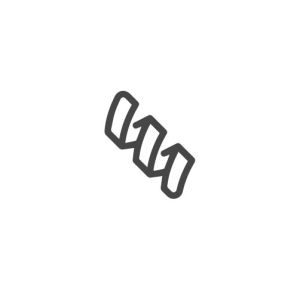Catalog No: OKEH03902
Size:96T
Price: $675.00
SKU
OKEH03902
Availability: Domestic: within 1-2 weeks delivery | International: 1-2 weeks
Please contact customer service when ordering 10+ kits.
Contact Us:
- Toll Free: 888-880-0001
- Phone: 858-552-6979
- Email: info@avivasysbio.com
Shipping Info:
- $55: Antibody & Protein in US
- $55 + $25/Kit in US
- Contact us for international orders.
DNASE1 ELISA Kit (Pig) (OKEH03902)
| Datasheets/Manuals | Click here to download product manual. As variation between lots may occur, always reference the lot-specific manual received with each kit. |
|---|
| Predicted Species Reactivity | Porcine, Sus scrofa | ||||||||||||||||||||||
|---|---|---|---|---|---|---|---|---|---|---|---|---|---|---|---|---|---|---|---|---|---|---|---|
| Application | Enzyme-linked Immunosorbent assay-Sandwich | ||||||||||||||||||||||
| ELISA Kit Detection Method | Colorimetric, OD450 nm | ||||||||||||||||||||||
| ELISA Kit Duration | ~ 3 Hours | ||||||||||||||||||||||
| ELISA Kit Principle | Aviva Systems Biology DNASE1 ELISA Kit (Pig) (OKEH03902) is based on standard sandwich enzyme-linked immuno-sorbent assay technology. An antibody specific for DNASE1 has been pre-coated onto a 96-well plate (12 x 8 Well Strips) and blocked. Standards or test samples are added to the wells, incubated and removed. A biotinylated detector antibody specific for DNASE1 is added, incubated and followed by washing. Avidin-Peroxidase Conjugate is then added, incubated and unbound conjugate is washed away. An enzymatic reaction is produced through the addition of TMB substrate which is catalyzed by HRP generating a blue color product that changes yellow after adding acidic stop solution. The density of yellow coloration read by absorbance at 450 nm is quantitatively proportional to the amount of sample DNASE1 captured in well. | ||||||||||||||||||||||
| ELISA Kit Range | 31.2-2000pg/ml | ||||||||||||||||||||||
| ELISA Kit Reproducibility | Mean Intra-Assay Precision - < 4.4%, n = 20 Mean Inter-Assay Precision - < 7.3%, n = 20 | ||||||||||||||||||||||
| ELISA Kit Component |
| ||||||||||||||||||||||
| Reconstitution and Storage | Store as indicated in product manual. | ||||||||||||||||||||||
| Sample Type | Serum, Plasma, Tissue homogenates, Cell culture supernates, Other biological fluids | ||||||||||||||||||||||
| Sensitivity | 7.6 pg/mL | ||||||||||||||||||||||
| Specificity | Natural and recombinant Pig Deoxyribonuclease-1 | ||||||||||||||||||||||
| Publications | Degraded neutrophil extracellular traps promote the growth of Actinobacillus pleuropneumoniae. Cell Death Dis. 10, 657 (2019). 31506432 Role of Bacterial and Host DNases on Host-Pathogen Interaction during Streptococcus suis Meningitis. Int J Mol Sci. 21, NULL (2020). 32722502 | ||||||||||||||||||||||
| Assay Info | Assay Methodology: Quantitative Sandwich ELISA | ||||||||||||||||||||||
| Description |
| Gene Symbol | DNASE1 |
|---|---|
| Gene Full Name | deoxyribonuclease 1 |
| Alias Symbols | deoxyribonuclease I;deoxyribonuclease-1;DNase I. |
| NCBI Gene Id | 397051 |
| Protein Name | P11936 |
| Description of Target | Deoxyribonuclease-1 |
| Uniprot ID | https://www.uniprot.org/uniprot/P11936 |
| Protein Accession # | NP_999156.1 |
| Nucleotide Accession # | NM_213991.1 |
| Protein Size (# AA) | 284 |
| Molecular Weight | 32 kDa |
- Protocol:
- Reconstitution & Storage Instructions
- Western Blotting/Immunoblotting (WB/IB) Protocol
- Immunohistochemistry (IHC) Protocol
- Immunocytochemistry (ICC) Protocol
- Enzyme-Linked ImmunoSorbent Assay (ELISA) Protocol
- Blocking Peptide Competition Protocol (BPCP)
- Immunoprecipitation (IP) Protocol
- Antibody Array (AA) Protocol
- Tips Information:
-
See our General FAQ page.
Write Your Own Review
We found other products you might like!






